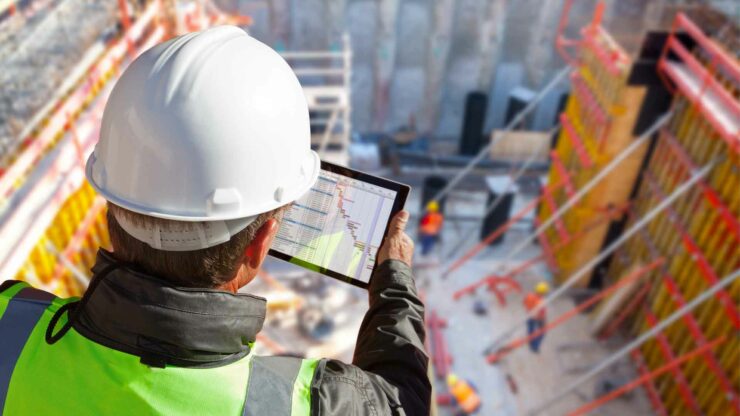Are you familiar with the complex process of building a house? The construction of a house involves many complicated tasks that require preparation, time management, and money. Project management in construction plays a pivotal role in ensuring projects are completed on time and budget.
To gain a wider understanding of the project management process in construction, we will take a behind-the-scenes look at some of the key responsibilities.
Understanding Project Management
Project management in construction involves establishing a timeline, setting milestones, and identifying resources for the accomplishment of a project. The project manager is responsible for overseeing and managing the entire process from beginning to end. They must also ensure that everyone involved understands their role in the project and provides feedback on progress.
Planning
The first step in any construction project is the planning phase. This includes defining objectives, developing a budget, and deciding on the resources needed to complete the project. Project planners also need to research and find the best materials for the job, including suppliers of steel in Salt Lake City or other local areas.
When planning a construction project, the project manager needs to consider any potential risks such as bad weather or delays in delivery. They must also create and revise plans throughout the construction phase to ensure that all objectives are met on time and within budget.
Project Execution
Once the plan is in place, construction can start. This includes hiring contractors, coordinating schedules with subcontractors, ordering needed materials, and ensuring that all tasks are completed on time and budget. Project managers must also stay on top of any changes or unexpected developments during the project.
During the execution phase, project managers must also keep track of all costs associated with the construction and ensure that they stay within budget. This includes monitoring and tracking labor costs, materials costs, and any other related expenses.
Monitoring and Control
Throughout the project, the project manager must monitor and control all aspects of the construction. This includes regularly evaluating progress, reviewing reports, and providing feedback to ensure that the project is on track. The project manager must also address any issues or potential problems as they arise.
Closing
The closing phase of a construction project involves ensuring that all objectives have been met and any needed final adjustments have been made. This could include conducting a final inspection, resolving any remaining legal issues, and collecting payments for completed tasks.
At the end of the project, the project manager provides an overall assessment of how well the objectives were accomplished in terms of budget and timeline. They also provide feedback on any areas that can be improved for future projects.
Challenges Faced by Project Managers
Project management in construction is not without its challenges. First, there can often be conflicting demands from stakeholders that must be dealt with diplomatically. This can mean having to make tough decisions and negotiate with all parties involved.
Another challenge is dealing with unexpected costs and delays, which can threaten the completion of a project. The project manager must be able to identify and solve problems in real time without compromising quality or safety.
Finally, project managers need to stay on top of ever-changing material prices and regulations for the construction industry. They must also keep up with new technologies, such as building information modeling (BIM) or 3D printing, which could have a major impact on construction projects.
Conclusion
Project management in construction is a complex and challenging job that often goes unrecognized. It requires the project manager to maintain a balance between meeting deadlines, staying within budget, and ensuring quality control. By understanding the responsibilities of the project manager and how their role impacts the completion of a construction project, we can gain insight into why it is such an important part of the process.
So, the next time you are in awe of a newly constructed building, remember to give thanks to the project manager who made it all happen. Without them, these impressive structures would not be possible.







